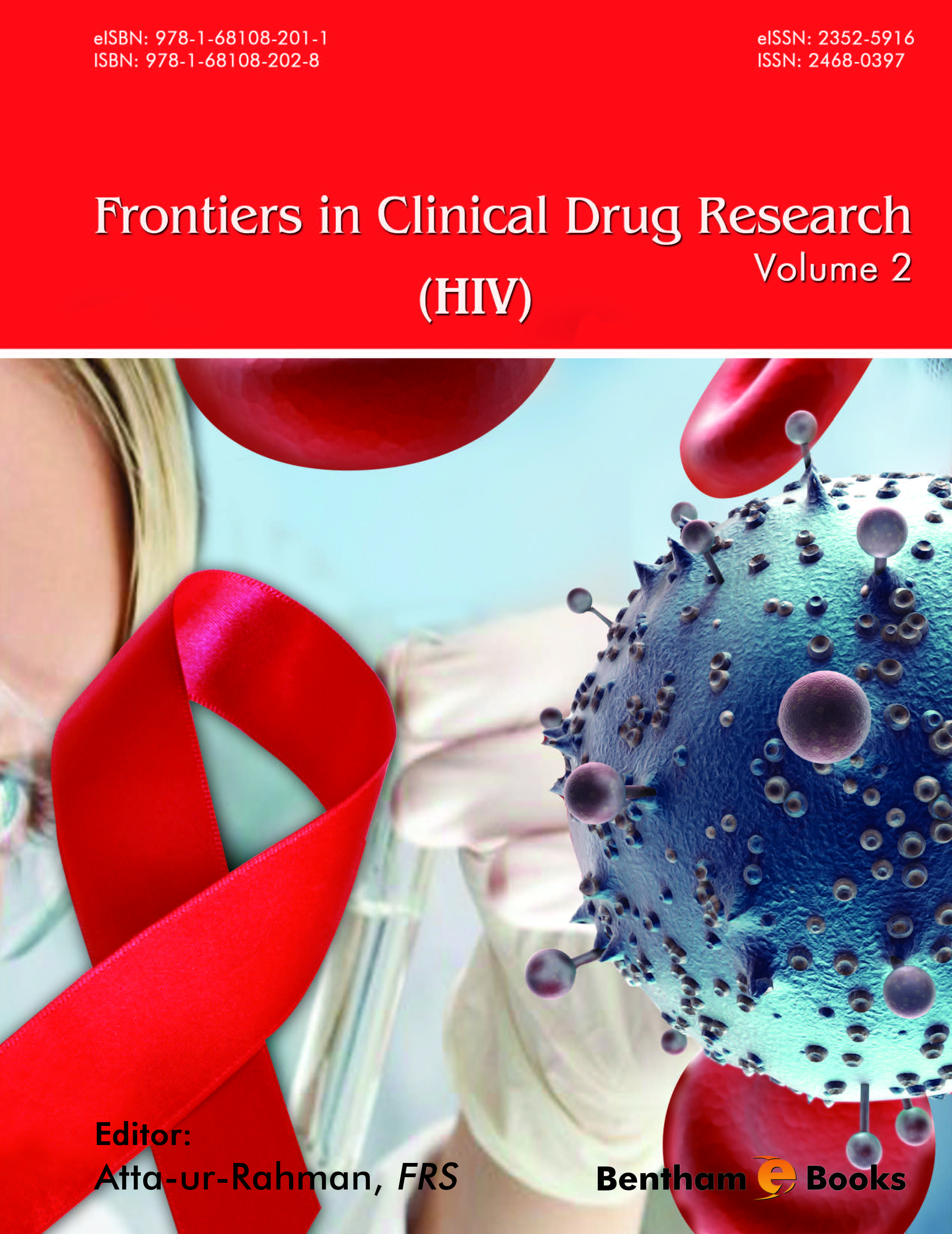Preface
Human immunodeficiency virus (HIV) is responsible for AIDS (Acquired Immune Deficiency
Syndrome) that negatively affects the immune system so that the ability to fight infections and
diseases gets weakened. This opens the way for many other life-threatening infectious diseases to
affect to the host simultaneously. Currently, there is no cure for HIV/AIDS but treatments have
evolved over the years which are much more effective and could improve patients' health
conditions considerably. Volume 2 of the book series Frontiers in Clinical Drug Research-HIV
presents important recent developments in the form of cutting edge reviews written by experts in
the field.
Highly active antiretroviral therapy (HAART) uses multiple drugs that can act on special viral
targets which in turn maintain the functions of the immune system. Chapter 1 by Vieira dos Santos
and Rodrigues Tavares Pina reviews the connections between demographic, economical and
attitudinal factors associated with HIV/AIDS. They also discuss the role of antiretroviral therapy
to target various stages of the disease in both adults and adolescents.
The genitourinary mucosa is considered as the most common route of HIV transmission. Baum
et al. in chapter 2 discuss the tropical microbicides that could be directly administered into vagina
for HIV-1 prevention and an overview is presented of the classes of microbicides currently under
current investigation. The dosage forms of these drugs along with their associated challenges are
also discussed in this review. The authors also discuss the key role of interaction of the
microbiome with the host in topical HIV-1 prophylaxis.
The adherence to antiretroviral (ARV) drugs plays an essential role in HIV prevention and
treatment. Non-adherence to these drugs may lead to emergence of HIV drug resistance and
therapeutic failure. Chapter 3, by Musumari et al., comprehensively reviews the vital role of
adherence in HIV prevention and treatment with respect to the recent advances in ARV drug
research.
HIV-integrase is a striking target for the development of new anti-HIV drugs and has potent
antiviral activity. Shengxi Chen in Chapter 4 describes the structure, function, mechanism,
pharmacology, pharmacokinetics, pharmacodynamics and clinical use of integrase inhibitors. The
author emphasizes on the development of three FDA approved HIV-1 integrase strand transfer
inhibitors (INSTIs); raltegravir, elvitegravir and dolutegravir.
Long-acting antiretroviral (ARV) drugs offer a more convenient option for HIV maintenance
therapy and are accountable for better adherence to pre-exposure prophylaxis (PrEP). The
developing ARV candidates are GSK744 - an Integrase Strand Transfer Inhibitor and TMC278 -a
Non-nucleoside Reverse Transcriptase Inhibitor. In chapter 5, written by Iacob et al., the results of
trials, advantages and disadvantages of these emerging candidates are reviewed.
The 2nd volume of the book series represents the results of a significant amount of work by many
eminent researchers and it should prove to be a valuable contribution for researchers who wish to
keep up to date with important recent developments in this field. I wish to express my gratitude to
the editorial staff, particularly Mr. Mahmood Alam (Director Publication), Mr. Shehzad Naqvi (Senior Manager Publications) and Ms. Fariya Zulfiqar (Assistant Manager Publications) for their
hard work and persistent efforts.
Atta-ur-Rahman, FRS
Kings College
University of Cambridge
Cambridge
UK

